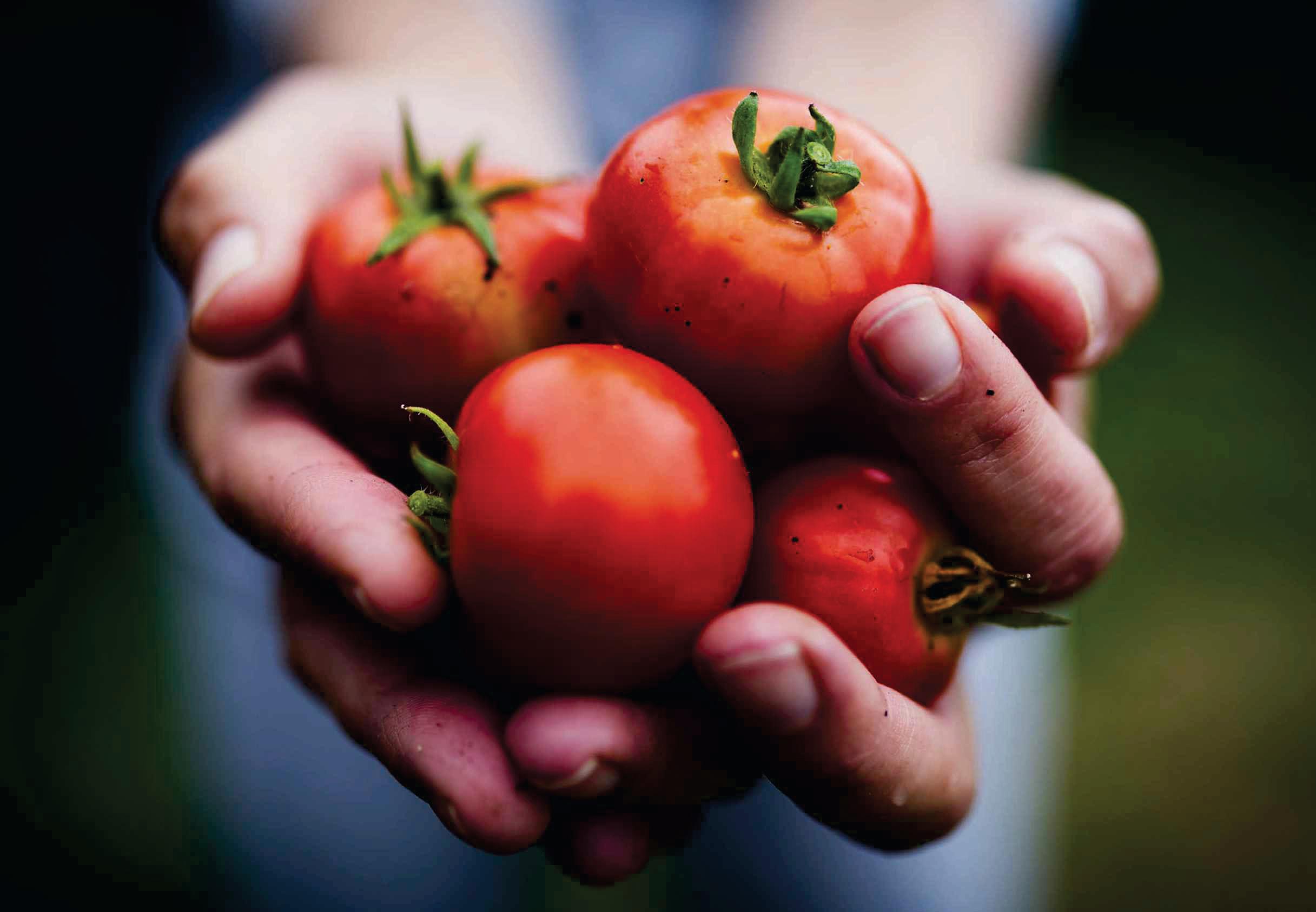कोशिश गोल्ड - मुक्त
Polyphenols: The key to a healthier, longer life or just another health food fad?
BBC Science Focus
|February 2025
A special type of nutrient that's only found in fruit and veg could be more important to your health than vitamins and minerals

We all know eating fruits and vegetables is good for our health. But how much is enough, exactly? The World Health.
Organization (WHO) says, to help lower the risk of serious health conditions such as heart disease, stroke, type 2 diabetes and several types of cancer, we should each be eating at least 400g or 14oz a day (for context, a medium-sized apple weighs about 150g/5oz)..
How close people get to this target varies around the world. But across the 38 countries in the Organisation for Economic Co-operation and Development (which includes the UK and US), only 15 per cent of people eat the recommended amount.
That's worrying because, as you'd expect, fruit and vegetables contain a smörgåsbord of nutrients that keep our brains and bodies in tip-top shape. That said, it could be that one class of nutrients, known as polyphenols, is of particular value. Hence, polyphenols is the biggest nutritional buzzword of 2025.
THE IMPORTANCE OF PHYTONUTRIENTS
When we talk about the health benefits of fruits and vegetables, we often focus on the fact that they're nutrientdense whole foods. This means that they're packed with vitamins and minerals (essential for supporting the normal functions in our bodies) without being high in calories, fats, salt or sugar.
We could, theoretically, get all the vitamins and minerals we need without eating many, if any, fruits or vegetables. And although the same could be possibly said for eating the right combination of supplements and meal-replacement products, they aren't natural whole foods. Which is to say that they're missing one important element that gives us huge health benefits: phytonutrients.
Phytonutrients are the natural compounds found in plants that give them their colours and flavours, and help protect them from environmental stress, pests and disease. They also play a key role in promoting human health.
यह कहानी BBC Science Focus के February 2025 संस्करण से ली गई है।
हजारों चुनिंदा प्रीमियम कहानियों और 10,000 से अधिक पत्रिकाओं और समाचार पत्रों तक पहुंचने के लिए मैगज़्टर गोल्ड की सदस्यता लें।
क्या आप पहले से ही ग्राहक हैं? साइन इन करें
BBC Science Focus से और कहानियाँ

BBC Science Focus
HOW UNLIKELY IS OUR UNIVERSE?
Our understanding of the Universe has revealed that its existence, and indeed our own, relies on a particular set of rules.
1 mins
December 2025

BBC Science Focus
DOES YOUR NAME AFFECT YOUR PERSONALITY?
Research is revealing that nominative determinism isn't as easy to dismiss as you might think
5 mins
December 2025

BBC Science Focus
HOW DIFFICULT WOULD IT BE TO FLY THROUGH THE ASTEROID BELT?
In the 1980 film Star Wars: The Empire Strikes Back, Han Solo and friends try to escape pursuing imperial forces by flying through an asteroid field. Droid C-3PO remarks, \"the odds of successfully navigating an asteroid field is approximately 3,720 to 1\". The scene depicts a chaotic, dense field of rocks swirling and spinning through space. This scenario has been played out many times in the cinema.
1 min
December 2025

BBC Science Focus
HOW CAN I BE MORE PERSUASIVE?
Most of us like to think we're rational people. If someone shows us evidence that we're wrong, we'll change our minds, right? Well, not necessarily, because it's not always that simple. Being wrong feels uncomfortable and sometimes threatening. That's why changing someone's mind is often much harder than it seems.
2 mins
December 2025

BBC Science Focus
This bizarre optical illusion could teach us how animals think
By seeing which animals fall for a classic visual trick, scientists are uncovering how different brains make sense of the world
1 mins
December 2025

BBC Science Focus
LIFE AT THE PARTY
The secret that keeps the superagers so sprightly could be socialising
3 mins
December 2025

BBC Science Focus
AIN'T NO MOUNTAIN HIGH ENOUGH
Could an exoskeleton help you scale every peak with ease? Ezzy Pearson straps on some cyborg enhancements to find out
5 mins
December 2025

BBC Science Focus
A slice across the sky
The green flash slicing through the skies in this shot is a fireball.
1 min
December 2025

BBC Science Focus
TB is surging. Should we be worried?
Cases of the world's deadliest infection are climbing in the UK and US. Why is tuberculosis returning and how do we fight back?
4 mins
December 2025

BBC Science Focus
I survived the worst fire in the history of space exploration and had to keep it a secret
Astronaut Jerry Linenger opens up about one of the worst accidents in space, and the cover-up that followed
1 mins
December 2025
Listen
Translate
Change font size
